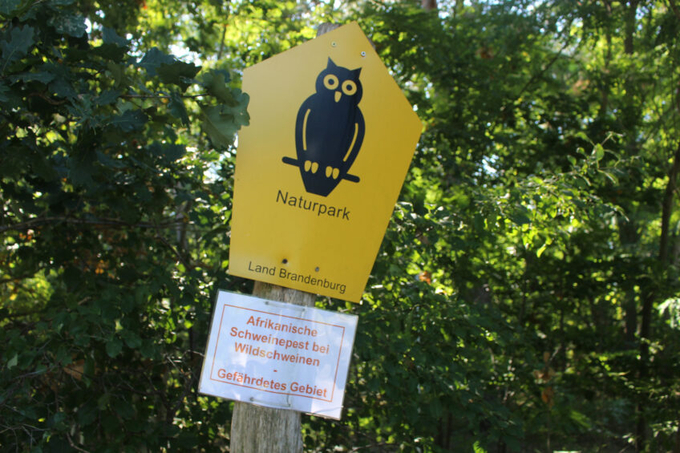November 27, 2025 | 12:00 GMT +7
November 27, 2025 | 12:00 GMT +7
Hotline: 0913.378.918
November 27, 2025 | 12:00 GMT +7
Hotline: 0913.378.918

ASF has been in wild boar in Germany since 2020. Today's farm is only the 9th to have confirmed the virus. Photo: Kees van Dooren
The infected farm is located near the town Pasewalk, in the district Vorpommern-Greifswald, at just over 20 km from the border with Poland. Local authorities confirmed the finishing farm has about 3,500 animals on site, which will all be culled and disposed of properly. On Wednesday 2 animals would’ve been developing fever, whereas a third had died, the local news outlet NDR reported.
The numbers roughly were in agreement with the official report that was made to the World Organization for Animal Health (WOAH), which spoke of 3,000 animals, 3 infected animals and one death.
The infection was confirmed on Thursday, June 6 by the German reference laboratory Friedrich-Loeffler-Institut (FLI). In a press release, the FLI stated that the exact origin of the infection is unclear. In the direct vicinity, according to the FLI, there is no ASF in wild boar. Allegedly, the virus was discovered at a slaughter plant.
Obviously the farm has been closed for transport. In the map below, the new outbreak has been added – it is the farm most north-west.
The moment of the infection is remarkable. It has been over a year since the previous outbreak in domestic pigs was reported in Germany (February 2023). It is the 2nd outbreak on a farm in the state Mecklenburg-Vorpommern, which is bordering Poland. The other outbreaks in domestic pigs were in Brandenburg (5), Baden-Württemberg (1) and Lower Saxony (1).
NDR quoted Till Backhaus, minister of agriculture of the state Mecklenburg-Vorpommern, who commented: “There are currently many indications that we are dealing with a point entry, similar to what we experienced in November 2021, when the virus was first detected in Mecklenburg-Vorpommern.”
In a press release, the authorities in the Vorpommern-Greifswald district quoted veteriarian Dr Holger Vogel, the head of the district’s veterinary and food inspection office. He said, “The district is taking the case very seriously and is working closely and in coordination with the Ministry of Agriculture. The aim now is to contain the spread and prevent it if possible. Animal suffering and possible economic damage must also be minimised.”
According to European standards, the district has set up a 3km protection zone and a 10km surveillance zone around the affected farm by general decree until further notice. There are another 3,500 animals in 67 farms in the protection and surveillance zones. Certain regulations apply to animal owners in these areas, such as the need to report dead animals immediately. Likewise, pigs may not be moved into or out of the protection zone.
(PP)

(VAN) A new study reveals how the simultaneous effects of ocean acidification, salinity and loss of oxygen are making the world more fragile.

(VAN) Hopes are growing that the creation of the first 3D turkey gut model could be a turning point in the battle against the virulent blackhead disease.

(VAN) Tyson, America’s biggest meat supplier, plans to shutter one of its largest beef processing plants as the industry continues to struggle with low cattle supplies and political pressure from Washington.

(VAN) New FAO study shows how digital solutions are empowering farmers and fishers to prevent losses and build resilient agrifood systems.

(VAN) Brazil's COP30 presidency pushed through a compromise climate deal on Saturday that would boost finance for poor nations coping with global warming but that omitted any mention of the fossil fuels driving it.

(VAN) Poultry farmers in the UK have been warned that they could face one of the worst winters yet for bird flu.

(VAN) Prices of main-crop paddy have risen sharply, with jasmine rice hitting 16,100 baht per tonne — the highest level in years.